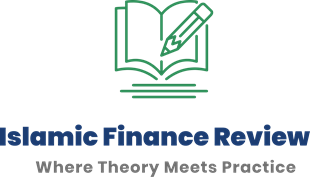
How to Make Your Business More Islamic Finance Compliant in Ramadan
- Post by: wp-islamicfinancereviewcouk
- March 7, 2025
- No Comment
Ramadan is a time of spiritual renewal and ethical responsibility, and this extends beyond personal finance into business operations. Many Muslim entrepreneurs and business owners seek to align their business practices with Islamic finance principles, ensuring their operations remain halal and ethical.
Islamic finance is rooted in fairness, transparency, and social responsibility, making it highly relevant for businesses during Ramadan. Whether you run an online store, consultancy, or corporate enterprise, adopting Shariah-compliant financial practices can help you build trust with customers while gaining barakah (blessings) in your earnings.
This blog outlines practical steps to make your business more compliant with Islamic finance principles during Ramadan and beyond.
1. Avoiding Riba (Interest) in Business Transactions
Islam strictly prohibits riba (interest) in financial dealings, making it crucial for businesses to avoid any involvement in interest-based loans or credit systems.
What Can Businesses Do?
✅ If you need financing, use Islamic business loans such as:
- Murabaha Financing (Cost-Plus Financing) – Where profit margins are fixed in advance.
- Musharakah (Equity Partnership) – Where investors share profits and risks.
- Qard Hasan (Benevolent Loan) – An interest-free loan structure.
✅ Choose Shariah-compliant banks for business accounts, ensuring your funds do not contribute to interest-based investments. Some Islamic banks offering business accounts include:
Al-Quran 2:275: “Allah has permitted trade and has forbidden interest (riba).”
2. Paying Zakat on Business Wealth
Just as individuals must pay Zakat, businesses are also obligated to purify their earnings by donating a portion of their assets to the needy.
How to Calculate Zakat for Your Business?
- Identify Your Zakatable Assets:
- Business savings
- Inventory (goods for sale)
- Receivables (money owed to your business)
- Deduct Business Liabilities:
- Business debts or outstanding payments.
- Calculate 2.5% of the Remaining Assets
- This is the amount of Zakat to be paid.
💡 Use Online Zakat Calculators:
Al-Quran 9:103: “Take from their wealth a charity by which you purify them and cause them increase.”
3. Ensuring Ethical Business Practices & Transparency
One of the fundamental aspects of Islamic finance is transparency and fairness in trade. Deceptive marketing, false advertising, and unfair pricing are against Shariah principles.
✅ Be Honest in Business Dealings
- Avoid overpricing or hiding defects in products.
- Use clear contracts and agreements.
- Fulfill all customer rights and guarantees.
Hadith (Sunan Ibn Majah 2137): “The Prophet (ﷺ) said: ‘The truthful and honest merchant is with the Prophets, the truthful, and the martyrs.'”
4. Offering Halal Payment Methods
Many businesses accept credit cards and loans, but these often involve interest-based transactions. To remain Shariah-compliant, consider offering halal payment alternatives:
✅ Accept Shariah-compliant digital payments:
- Debit card payments instead of credit cards.
- Bank transfers to Islamic banks.
- Buy Now, Pay Later (BNPL) with Halal Terms (e.g., Murabaha-based payment plans).
✅ Use Islamic Payment Gateways
By implementing these options, businesses cater to Muslim customers while upholding Islamic ethical principles.
5. Giving Back to the Community Through Sadaqah
Ramadan is a month of giving, and businesses can contribute by:
✅ Donating a percentage of profits to charity.
✅ Sponsoring community iftar events.
✅ Launching CSR (Corporate Social Responsibility) initiatives aligned with Islamic values.
Hadith (Tirmidhi 604): “The best charity is that given in Ramadan.”
6. Selling Halal Products & Services
A Shariah-compliant business should ensure that all goods and services meet halal standards.
❌ Avoid selling haram items, such as:
- Alcohol, tobacco, gambling-related products.
- Interest-based financial services.
- Non-halal food products.
✅ Certify Your Business with Halal Certifications:
This builds trust among Muslim consumers, ensuring your business meets Islamic ethical standards.
7. Automating Islamic Finance Compliance
To maintain long-term Shariah compliance, businesses can use Islamic financial tools:
✅ Islamic Business Accounting Software:
- IFG Wealth – Helps businesses track halal income and investments.
- Wahed Invest – Shariah-compliant investment management.
✅ Zakat & Charity Automation:
- National Zakat Foundation – For automatic Zakat calculations and payments.
- LaunchGood – Fundraising platform for halal businesses.
Al-Quran 5:2: “Help one another in acts of righteousness and piety, and do not assist one another in acts of sin and transgression.”
Conclusion: A More Ethical & Barakah-Filled Business This Ramadan
Ramadan is not just about spiritual purification but also about financial and business ethics. By following Islamic finance principles, businesses can ensure that their income is halal, ethical, and full of barakah.
By avoiding riba, paying Zakat, ensuring ethical trade, and offering halal payment options, businesses not only align with Shariah law but also gain the trust of Muslim customers and attract blessings in their earnings.
💡 Key Action Steps:
✅ Open a Shariah-compliant business bank account.
✅ Avoid interest-based loans, opt for Islamic financing.
✅ Ensure halal-certified products & services.
✅ Pay Zakat on business earnings.
✅ Use halal payment gateways.
✅ Give charity and support community initiatives.
Al-Quran 64:16: “So fear Allah as much as you are able and listen and obey and spend [in His cause]; it is better for yourselves.”
